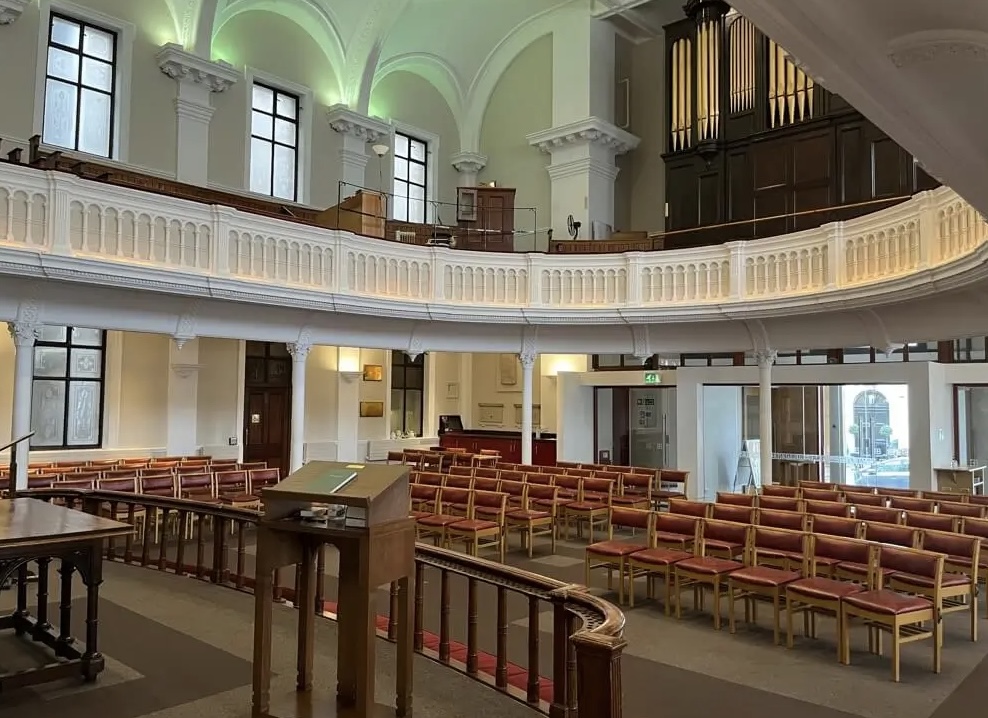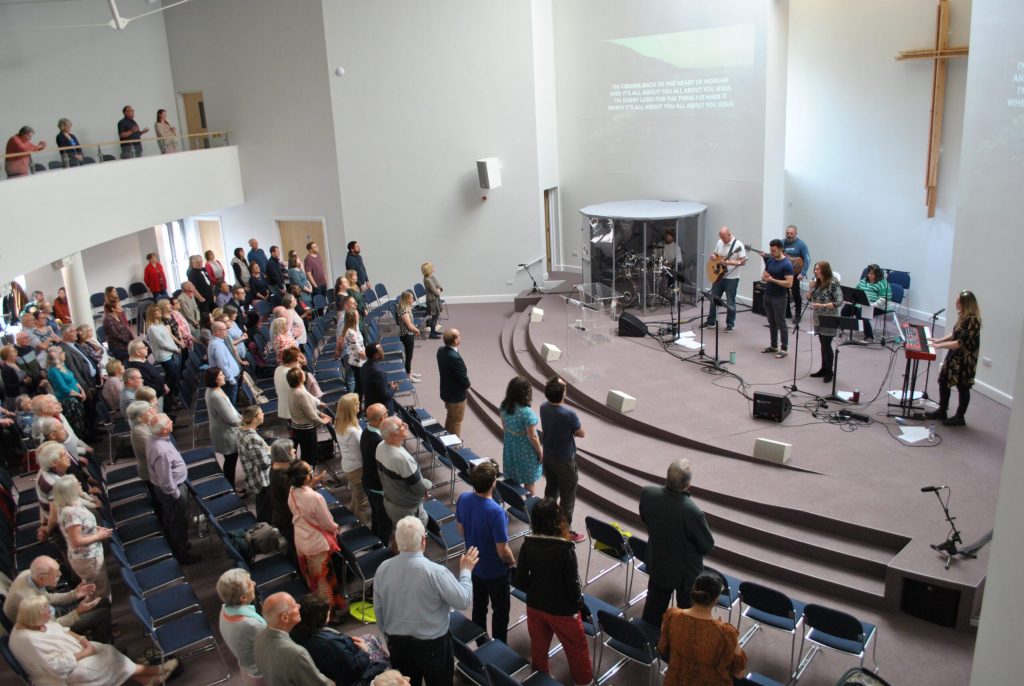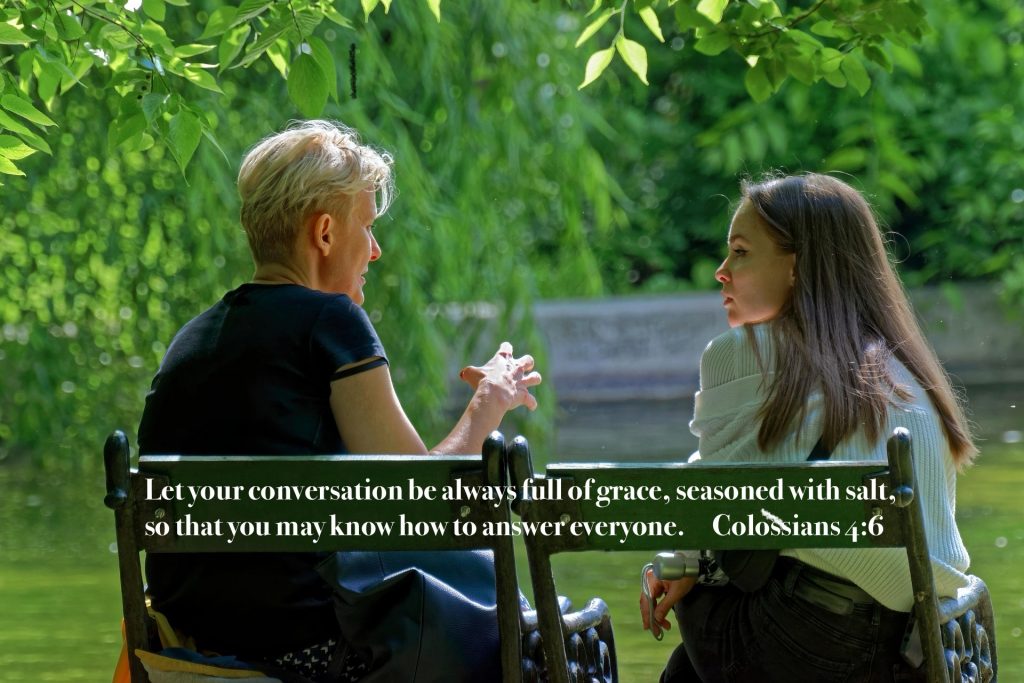Inclusive or Exclusive Conversations?

Last weekend saw the opening of the Guinness Six Nations Rugby championship. Over the next couple of months Ireland will pit their skills against England, Scotland, Wales, France and Italy. For rugby fans, it’s a part of the year that is eagerly anticipated.
Last Sunday evening, I spoke with a passionate rugby fan about the opening games of the weekend, after the evening service. We discussed the strengths and weaknesses of the various teams we had seen, we debated various team selections and players who deserved their places or, perhaps, may be dropped for the next game. We talked about coaches and their different approaches and refereeing decisions.
It was a fascinating conversation, and I’m sure many fans across the nations were having similar ones over the weekend. When I reflected on it afterwards, it struck me that anyone with an interest in rugby could have happily joined in. Many of us have great wisdom distilled from the comfort of our armchairs as we watch these elite players compete ferociously.
The flip side of this, however, was that many would have felt excluded totally from the conversation. There are people out there (surprisingly enough!) who have no interest whatsoever in the events of last weekend on various rugby stadiums across Europe. They can quite happily occupy themselves in other things of interest and they don’t really mind at all who played in what position and who won the game. They might not even have been aware these games were on because it has no relevance or appeal to their life at all.
Sports fans find it hard to comprehend this. How could something that is so important to them have little or no relevance to other people? Why are people crawling around the roads obeying the speed limits when others are desperate to get home in time for kick off to watch the big game on television?
Sometimes it can feel a bit like this for people of faith. If their faith is extremely important to them, it can feel bizarre, or even disturbing, that family, friends or other people in the community do not share their values or priorities.
If faith has never been a point of reference in their lives, it can seem that they don’t care. When you invite them to church services or events and they politely decline, how should we respond?
I think there are a few things we might consider. One is that the polite refusal is not designed to be rude or disrespectful. The other people may have previous plans or simply have no idea of what would be the point of going. They might feel nervous that in going into an unfamiliar environment they would stand out like a sore thumb and not really know what to do.
They may have had a bad experience of church in the past. Maybe they were forced to go throughout their childhood and their memories of that environment are not positive ones.
Maybe they are going through an experience of hurt or suffering, and the thought of being in an atmosphere like church might trigger a whole wave of emotions that would leave them feeling vulnerable and ill at ease.
It may be problematic to sit for a prolonged period, or they may have caring responsibilities at home that mean they are not free to go.
Here are a few things I sometimes do to try to make the invitation a bit easier to receive.

I like to tell people what the experience will be like. Would you like to come to our Carol Service where we have the chance to sing special Christmas songs and hear Bible readings about the real meaning of Christmas? It usually lasts about an hour and, if you want, there will be tea and coffee afterwards. If you’d like to come I’ll meet you before and we can sit together. Would you like to come to a healing service on Sunday at my church? There’s the opportunity for anyone who would like to be anointed with oil to pray for healing in their lives or in the life of someone they care about. It usually lasts 45 minutes to an hour and, if you don’t want to go up, that’s fine, there’s no expectation or pressure to do so but, if you wanted to go up, I’ll come with you.
I like to tell people why I go and see if they want to join me. Would you like to come along to my church sometime? I’ve been going for quite a while and I find it helps me when I feel stressed and anxious about things. The people are friendly and I enjoy hearing the way they try to apply the Bible to everyday life. I find it sort of sets me up for the week and I like to share stuff that has been helpful to me.

The reality that we sometimes struggle with is that people see no real difference in our lives to theirs and, therefore, see no point in going. We live in a country that has many places of worship and unless you go to them they don’t really impinge upon your life. I sometimes think of churches a bit like hairdressers.
There are dozens of hairdressers on the streets of our towns and cities. You tend to only really notice the one you go to. That’s not to say all the other hairdressers are rubbish, but you just go to the one you have always gone to. You get to know the routine. Some of them are really chatty and you enjoy that. Others are quiet and you appreciate the headspace if you have been busy all day.

Unlike my rugby conversation, which cut out quite a section of the people around me, how can we have inclusive conversations about faith? Conversations that stimulate curiosity and provide information and welcome and a safe space for people to bow out at any time?

Can we ask you to hold in your prayers the family of Walter Hughes, whose funeral will take place on Friday 7th February in church at 11.00 am.
Advance notice of a special fundraising coffee morning on Saturday 15th February. Elijah Saunders has been selected to play ice hockey for Ireland under 13’s and will travel to Canada in March. The coffee morning will be from 10.30-12.30. Be assured of a warm welcome and some delicious refreshments as we support Elijah in this great venture.
The blog will be taking a break next week. Look forward to speaking again soon.
Much love to everyone,
Jono.
Listen to the latest episode of ‘Bitesize Chunks of Faith’


